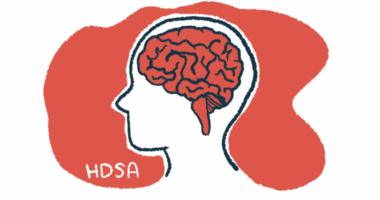Asking for Help Isn’t Always Easy, but Sometimes It’s Necessary

My daughter recently graduated from college. As the date approached, my wife, Jill, and I grew increasingly excited. Jill became more focused on all the things that we needed to do.
Jill is a planner, so she starts out by making lists. These lists are then accompanied by yellow sticky notes. Every tiny detail is meticulously thought of and added to the to-do lists. She spends hours planning where we will stay. How we will get there and back. What the cost will be (including shopping around for the best deals). Who will be invited. What the invitations will look like (which she started designing herself because she’s so good at it).
Four years have passed since our brilliant, beautiful daughter went off to college, which means we had four years to plan a graduation party. Four years goes by incredibly fast. I feel like we just dropped her off yesterday. So how did 1,460 days — which is 35,040 hours, or 2,102,400 minutes — go by so fast? Jill’s answer is that it didn’t. We just got slower.
While I disagree with her on that (not out loud, mind you), I couldn’t help but think about all of the things that happened to our family over the last four years. Some great things happened, along with some not-so-great things, such as Jill’s and our daughter’s diagnoses of Huntington’s disease. But everything has culminated in planning a trip with friends and family to celebrate her accomplishments.
While Jill is a world-class planner, she asked for help with planning and executing the trip and the party. For most people, this would be a normal occurrence. But for Jill, it is not. It’s not that she doesn’t accept help, but rather she enjoys bringing her thoughts to life. When she asked for help, I asked her to repeat her request. So she did, and then she added her reasoning.
She said, “I could use some help with this, not because I can’t do it alone, but because I don’t want to do it alone.” I asked why, and she responded that many things needed to be done, and she is worried that she may miss something. It was starting to stress her.
Planning things used to de-stress her, so when she said it was causing her stress, I realized that things are changing. Not in a big way, but in one of the tiny ways that Huntington’s changes the brain. The thing she once found fun now gives her anxiety. While I am happy she asked for help, I am sad that she had to.
Jill and I have made a promise to each other over the years. We promised to be open about our faults, our insecurities, and all the things people try to hide from each other. It’s not always easy, but in the long run, we find it works for us. As a caregiver, I can’t help her unless I know what she needs help with. From what I’ve heard about Huntington’s, this is just the beginning of the kind of help she will need.
***
Note: Huntington’s Disease News is strictly a news and information website about the disease. It does not provide medical advice, diagnosis, or treatment. This content is not intended to be a substitute for professional medical advice, diagnosis, or treatment. Always seek the advice of your physician or other qualified health provider with any questions you may have regarding a medical condition. Never disregard professional medical advice or delay in seeking it because of something you have read on this website. The opinions expressed in this column are not those of Huntington’s Disease News, or its parent company, Bionews Services, and are intended to spark discussion about issues pertaining to Huntington’s disease.







Leave a comment
Fill in the required fields to post. Your email address will not be published.